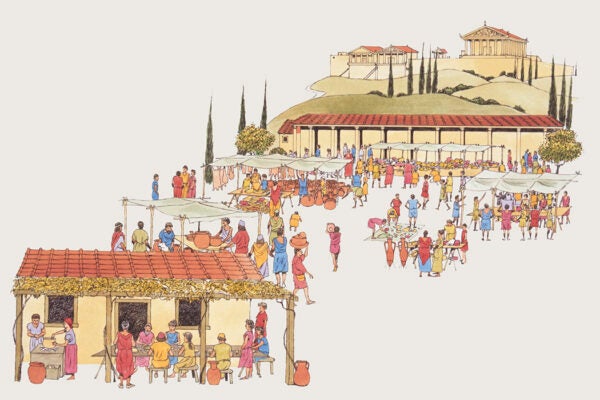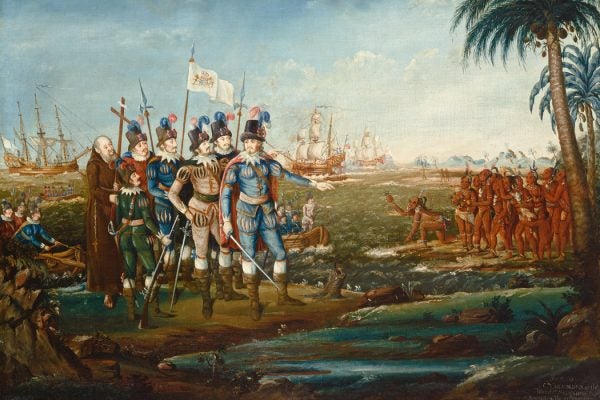How to be a Modern Autocrat
In the twenty-first century, dictators are less likely than their predecessors to use violence to suppress dissent, cultivating instead “informational autocracies.”
Economics in Ancient Greece
The modern term “economics” comes from the Greek word “oikonomia,” but the ancient Greeks had a very different way of thinking about material life.
Environmental, Social, and Governance Factors v. Fiduciary Duty
Asset managers have a fiduciary duty to act in your best interests. Does that include considering ESG factors when investing your money?
How Much Does It Cost to Reduce Carbon Emissions?
Analyses including both static and dynamic costs can help us make better decisions while developing technologies to address climate change.
The Incredibly True Story of Fake Headlines
Are you still reading? Editors frequently use this space to include important contextual information about a news story.
The Columbian Exchange Should Be Called The Columbian Extraction
Europeans were eager to absorb the starches and flavors pioneered by the indigenous peoples of the Western Hemisphere.
Paying for Love in the Caring Economy
Is it terrible to have to pay someone to care for your loved ones? Or could it actually be an effective way to establish a high standard of care?
To Fight Fake News, Broaden Your Social Circle
Fake news is spread through online communities that become echo-chambers of like-minded ideas. What's your online community like?
Sociophysics and Econophysics, the Future of Social Science?
Can empirical data about human behavior make the “soft” sciences more like the “hard” ones? New interdisciplinary fields are voting yes.
The Roots of Privatization
The great turn towards privatization is usually thought to have begun in the 1970s, with Chile's dictatorial regime, but its roots go back further than this.









